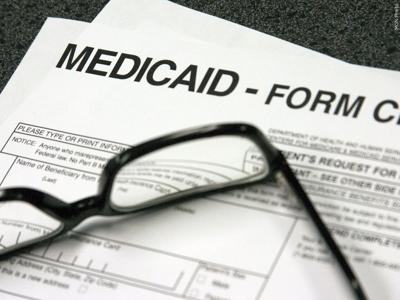DELAWARE - Annual Medicaid eligibility renewal determinations have begun for the first time since the start of the pandemic. Most people currently receiving services under Medicaid have actions to take to avoid gaps in health coverage.
Before the pandemic individuals would be required to redetermine that they meet financial requirements to continue to be on Medicaid every year. During the pandemic, starting in March 2020, they didn't have to go through that process.
President Biden signed the Consolidated Appropriations Act in December 2022, which kicked off Medicaid programs unwinding from the public health emergency. This began the requirement of the redetermination process again.
Programs around the country, including in Delaware, began to reach out to individuals who were either on Medicaid before the public health emergency in March 2020 or who enrolled during the pandemic. Agencies within the state began to let them know that Delaware would start the renewal, or redetermination, process.
In Delaware, the process began in April 2023. The State of Delaware, Department of Health and Social Services, the Division of Social Services, and the Division of Medicaid and Medical Assistance began notifying people that they needed to update their contact information. This would help to ensure that they would receive a renewal notice and be able to complete and return it to the state.
Before receiving a letter, Medicaid recipients may receive text messages, emails, and postcards from Division of Social Services and other health organizations that are reminding them to update their contact information.
"The goal really was to inundate people from multiple different sources. They're going to be tired of hearing about it, because of all of the information we're sharing," said Ted Mermigos, acting director at the Division of Medicaid and Medical Assistance. "We're saying to advocacy groups, 'you have contact with people on the front line, please continue to share this information.' We certainly want to share that with as many people as we can."
Currently Delaware has around 320,000 people on Medicaid. Because of this high number, the redetermination process will happen in batches of about one-ninth of the total caseload receiving notices per month. Letters began going out in April and will continue to do so until about May 2024.
The order in which notices will be sent is based on the length of a case, with oldest cases going first. Those who were enrolled in Medicaid before the pandemic will be reached out to first and receive the first batches of letters. Those who are newer and have been on Medicaid the shortest amount of time will likely receive a notice towards the end of this year or early 2024.
"When we talk about notifying individuals about updating their contact information, somebody may not be getting the redetermination notice until October, November, or even into the beginning of next year," Mermigos told WRDE. "The whole thing about making sure we have updated contact information is going to be taking place that whole time."
The letter for redetermination comes with a lot of information about offered services as well as blanks that need filled in by the recipient before returning it. If the information is not returned within 60 days, the case will close and coverage will end. Mermigos said that, if returned after 60 days, the case could be reopened if the individual still qualifies and services can continue.
Exceptions exist for people in certain groups like those in long-term care like nursing facilities or those who have developmental disabilities. If people in these groups fail to respond to a notice, their cases will not close automatically after 60 days. In fact, Mermigos said their cases will not close until contact is made with them. These cases reside with the Division of Medicaid and Medical Assistance and an operations team will continue working to make contact with these individuals to do a redetermination.
The majority of individuals on Medicaid are handled by the Division of Social Services. Their cases will close if a response is not returned when an individual receives a redetermination notice.
There's also process for passively renewing individuals. Before a letter is sent for redetermination, the Division of Social Services and the Division of Medicaid and Medical Assistance look through financial information on Medicaid members. If they can determine that someone has not had an financial increase and that they still meet the qualifications, they may passively renew them. People who are passively renewed will still get a letter, but not for redetermination. Instead it will say that Medicaid services will be continuing. Mermigos expects that about 35 percent of Medicaid recipients will fall into this category.
Those who are disenrolled from failure to respond to the redetermination notice or who provided updated information and are deemed ineligible will be guided towards assistance with the federal marketplace. The State of Delaware is working with the federal marketplace and Quality Insights in Westside Family Health to help people who have been disenrolled from Medicaid find alternative forms of health insurance coverage. Any individual disenrolled from Medicaid can also request a hearing from the Division of Social Services.
Managed care organizations like Highmark Health Options and AmeriHealth also have plans on the federal marketplace. These organizations receive information when an individual is up for Medicaid redetermination and may also reach out to them to help get them signed up for alternative insurance if disenrolled from Medicaid.
"We're trying to get this message out there. We don't want anybody who is eligible to be disenrolled, all because they didn't get the paperwork," Mermigos said. "If they didn't get it, they're going to be disenrolled, even though they're eligible. The last thing we want to see happen is people be disenrolled when they're eligible just because they didn't get the message."
More information on Medicaid eligibility and the renewal process can be found at www.dhss.delaware.gov. Those who need to complete a renewal application online or update contact information should visit www.assist.dhss.delaware.gov. For guidance on choosing a private insurance plan if no longer eligible for Medicaid, visit www.choosehealthde.com.







